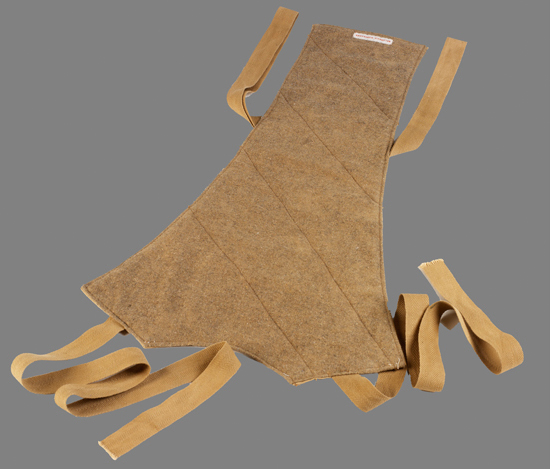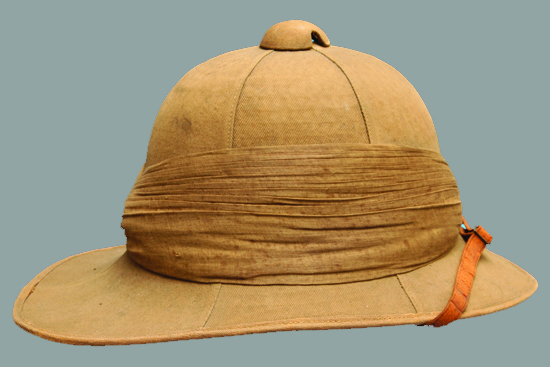
A First World War period British Army issue spine pad. The pad was worn to protect the wearer’s spine from intense heat that was thought to cause heatstroke. (Photo Imperial War Museum, author’s collection)
“The spine pad has become a dull museum piece, and it is probable that specimens are nowadays not easy to find. Yet to those living in tropical areas during the early part of the century and to those serving with the British Army in hot climates during the First World War, memories may be evoked of a piece of cloth of cotton, silk or wool, plain or quilted, several inches wide, attachable to the shirt or coat along the spine, and sometimes with a coloured lining. It is now difficult to accept that this mere piece of cloth could in any way protect from the effects of the sun. But the purpose of the spine pad was so closely linked with the development of ideas concerning body heat, fever and sunstroke, that one must be prepared to explore many early lines of thought for an understanding of its origin and its demise.” 1 So writes E.T. Renbourne , retired Major, Royal Army Medical Corps, in 1956. Continue reading

